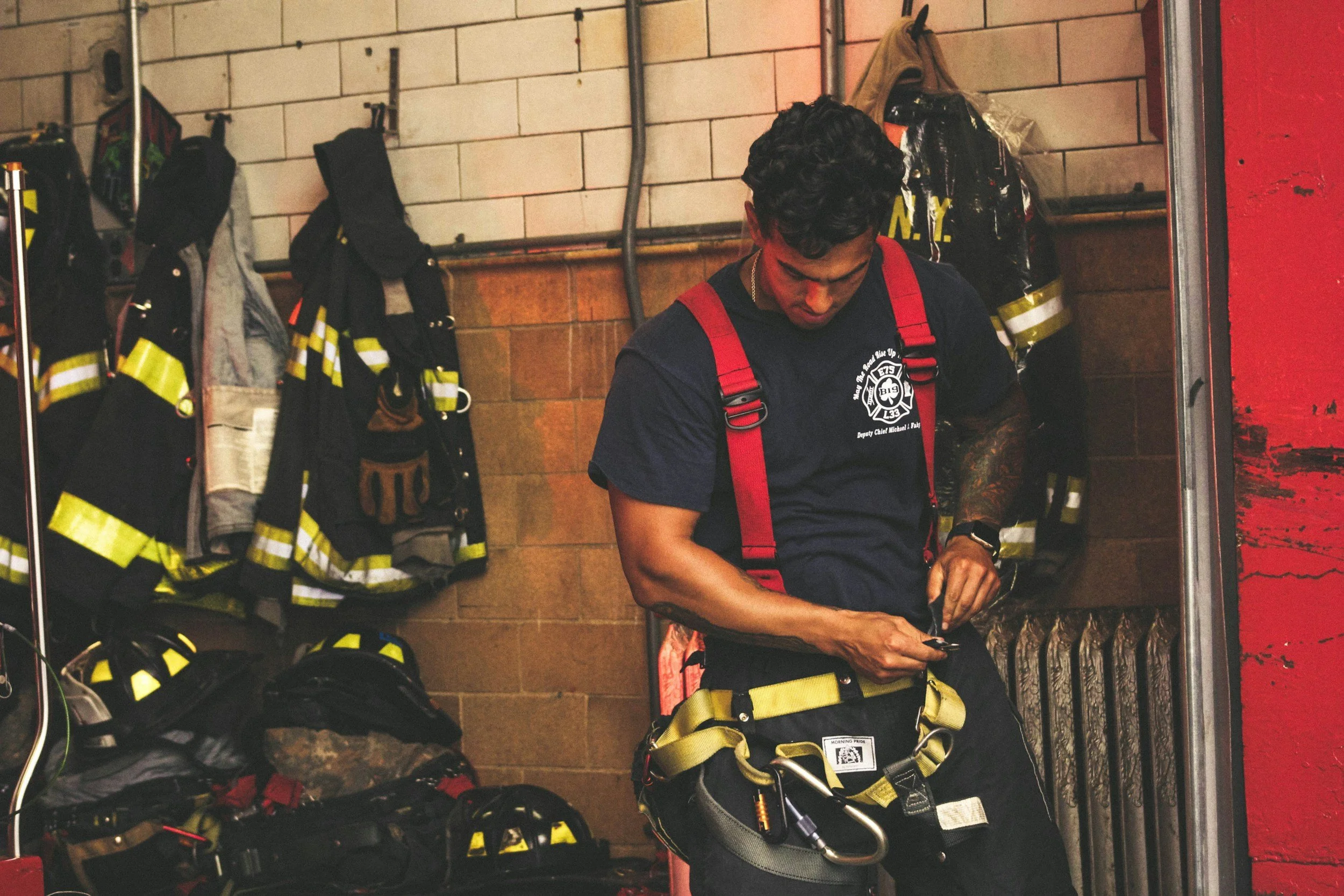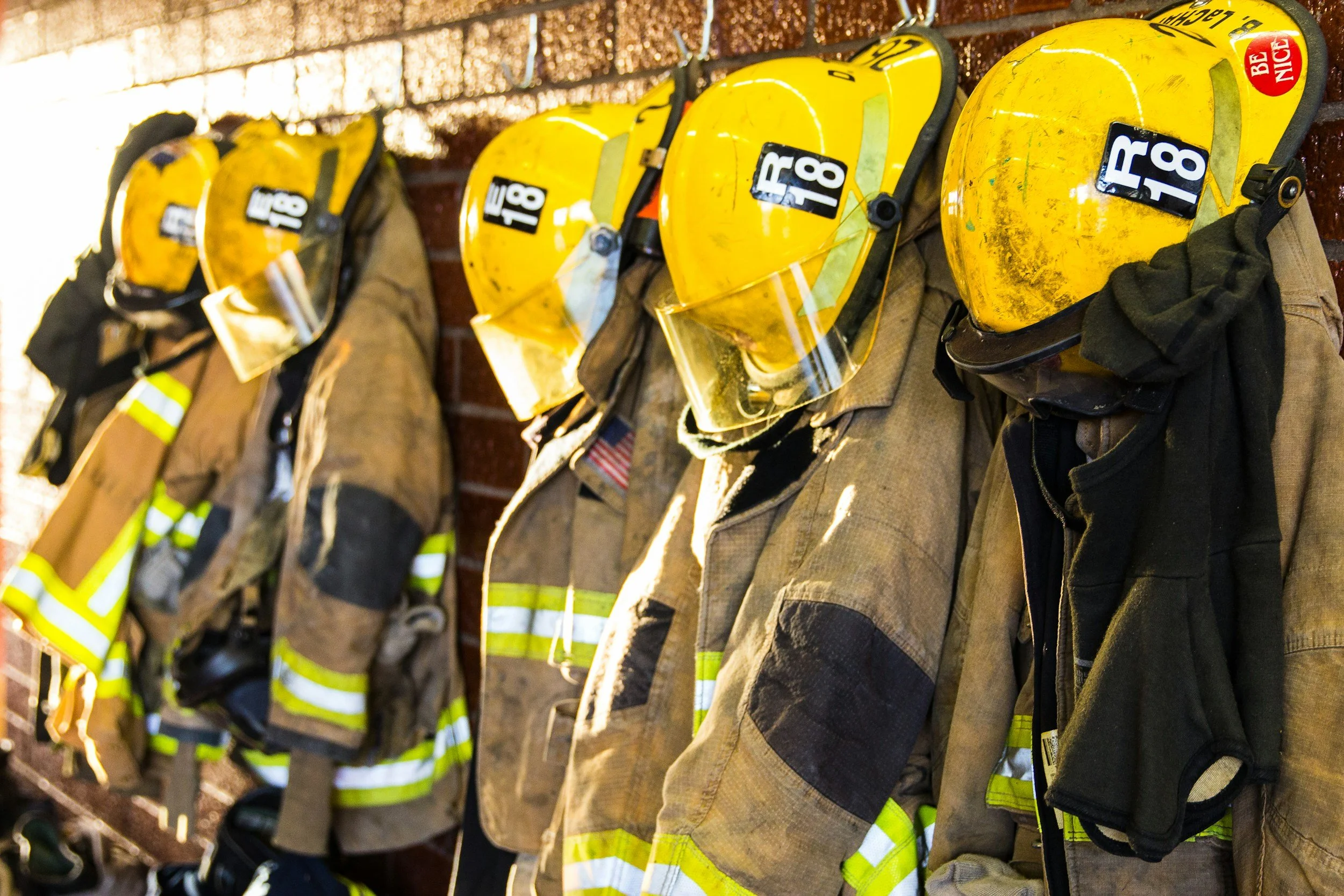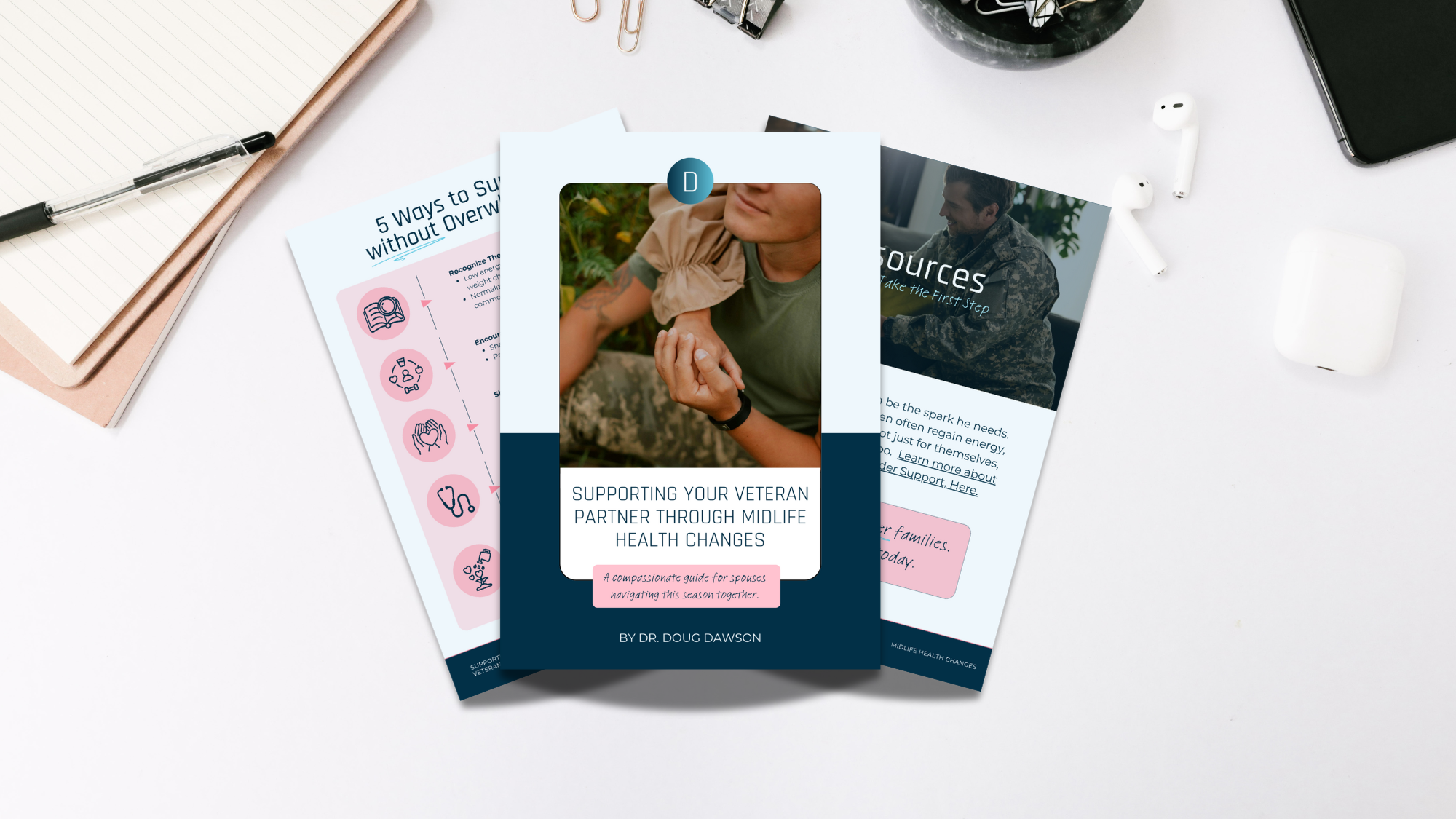
Testosterone Replacement Therapy for Combat Veterans and First Responders
Men who have served in combat or on the front lines of their communities face physical, emotional, and psychological demands that most people will never experience. Dr. Dawson provides personalized, evidence-based care tailored to helping you rebuild strength, clarity, and vitality from the inside out.
Understanding Low Testosterone in Veterans & First Responders
What Is Testosterone Replacement Therapy (TRT)?
Testosterone Replacement Therapy restores testosterone to healthy, optimal levels. TRT can help veterans and first responders improve energy, strength, recovery, mood, and overall performance so they can feel grounded and capable again.
Why Frontline Service Impacts Hormones
Chronic stress, trauma exposure, irregular sleep, physical strain, and operational environments all influence hormonal pathways — especially testosterone. These experiences don’t just affect your body during service; they can continue to impact you for years afterward.
Service-Related Factors That Increase Risk for Low Testosterone
-
Chronic Stress & High-Adrenaline Demands
Prolonged stress elevates cortisol, which suppresses testosterone. Years of hypervigilance, fight-or-flight responses, and high-stakes decision-making can significantly deplete hormonal balance.
-
Traumatic Brain Injury (TBI)
Even mild TBIs, blast exposure, concussive injuries, vehicle accidents, or assaults can disrupt the pituitary gland, which regulates testosterone production.
-
Sleep Disruption & Shift Work
Irregular schedules, night shifts, insomnia, and trauma-related sleep disturbances are common in frontline professions, and all can drive testosterone levels down.
-
Medication Effects
Opioids, antidepressants, and corticosteroids are frequently prescribed after injuries or trauma and can lower testosterone.
-
PTSD, Depression & Emotional Burnout
Mental health and hormone health are deeply connected. Conditions like PTSD disrupt the body’s stress-response system, often leading to lower testosterone.

Symptoms of Low Testosterone in Veterans & First Responders
You may have attributed these changes to “stress,” “age,” or “the job,” but low testosterone has recognizable symptoms:
Persistent fatigue or burnout
Reduced motivation, focus, or mental sharpness
Loss of muscle mass or reduced physical performance
Weight gain, especially around the abdomen
Changes in libido or sexual performance
Irritability, mood swings, or emotional numbing
These symptoms aren’t signs of weakness; they’re signs of imbalance. And they are absolutely treatable.
TRT & Frontline Health Support
Our care approach is personalized and grounded in medical evidence, integrating:
Testosterone Replacement Therapy tailored to your labs and symptoms
Holistic evaluation of stress, sleep, trauma, and recovery
Lifestyle guidance built for real-world challenges
Sleep optimization support
Regular follow-ups and symptom tracking
Benefits may include:
Increased energy and stamina
Improved mood and emotional resilience
Stronger muscle tone and faster recovery
Better sleep and healthier metabolism
Renewed sense of purpose, confidence, and capability

Is Testosterone Replacement Therapy Right for You?
Not every symptom is caused by low testosterone, and not every individual with low levels needs TRT. That’s why we begin with a comprehensive assessment: bloodwork, medical history, trauma/sleep review, and a conversation about your goals.
If TRT is a good fit, you’ll receive a personalized plan designed for your unique history, challenges, and lifestyle.
Why Veterans & First Responders Trust Dr. Dawson
With more than 30 years of experience in medicine, sleep health, hormones, and essential frontline populations, Dr. Dawson brings both scientific rigor and deep compassion to his work.
He understands the long-term impact of service and how traditional healthcare often overlooks the hormonal consequences of trauma, shift work, and chronic stress.
“My goal is to help you rebuild from the inside out with clarity, respect, and evidence-based care. You’ve spent your life serving others. Now you deserve care that truly understands your story.” - Dr. Dawson
Iowa
|
Illinois
|
Colorado
|
Montana
|
North Dakota
|
Iowa | Illinois | Colorado | Montana | North Dakota |
Dr. Dawson is licensed in the following states:
FREE DOWNLOAD
-
Chronic stress, trauma exposure, TBIs, disrupted sleep, and certain medications are all known to impact hormone production. These factors are significantly more common among frontline populations.
-
Yes. PTSD disrupts the body’s stress-regulation system, which can suppress hormone production and contribute to low testosterone symptoms.
-
Absolutely. Irregular sleep cycles interfere with the body’s natural hormone rhythms, often leading to low testosterone, poor recovery, and increased fatigue.
-
TRT may support improved emotional stability, motivation, and cognitive function. While it is not a treatment for PTSD or depression, many men experience improved resilience and overall well-being.







